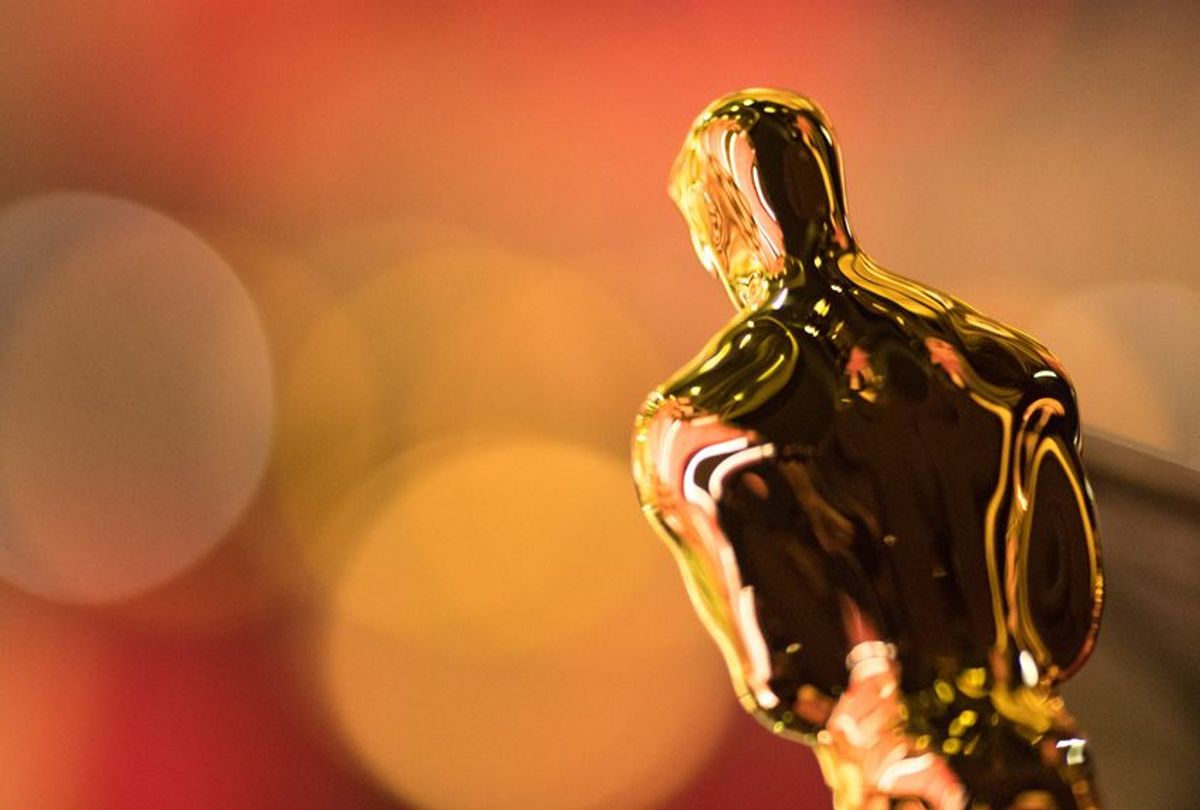 The Academy Awards celebrates its 90th anniversary this year. For all of its history, this film industry institution has done an abysmal job of recognizing people of color in every category and women of all races behind the scenes. The good news is, that changed slightly this year. The bad news is, there are still plenty of ways the Academy needs to do better.
The Academy Awards celebrates its 90th anniversary this year. For all of its history, this film industry institution has done an abysmal job of recognizing people of color in every category and women of all races behind the scenes. The good news is, that changed slightly this year. The bad news is, there are still plenty of ways the Academy needs to do better.
Black actors, traditionally overlooked by the Oscars, have earned several history-making nominations. Octavia Spencer is the first black actress to take home a statue and then be nominated again twice, with a win for The Help in 2012 and nominations for Hidden Figures in 2017 and The Shape of Water this year. Mudbound’s Mary J. Blige is the first person to be nominated both for Best Song and in an acting category. Daniel Kaluuya’s career-making turn in Get Outnetted him a Best Actor nod. He’s facing off against Denzel Washington, who is now the most Oscar-nominated black actor ever, following a nod for his portrayal of titular lawyer Roman J. Israel, Esq.
Jordan Peele was this year’s most headline-making nominee. The Get Outdirector, writer and producer became the third person ever — and the first African American — to be nominated for Best Director, Best Original Screenplay and Best Picture for a directorial debut. Should he triumph in the directing category (in which he’s one of only five black nominees in Oscar history), he’ll become the first African-American winner.
The handful of other nominees of color are key behind-the-camera players. Kumail Nanjiani, co-writer of The Big Sick, is the first person of Pakistani descent to be nominated for Best Original Screenplay. Adrian Molina’s Coco is up for Best Animated Feature, Ru Kuwahata’s Negative Space is vying for Best Animated Short, and Last Men in Aleppo’s Firas Fayyad is nominated for Best Documentary Feature.
Yance Ford, notably, makes Oscar history as the first transgender director ever to be recognized by the Academy with a Best Documentary nomination for Strong Island.
Of course, there were also familiar problems of underrepresentation. A recent study from the Women’s Media Center found that "despite a concerted push by many advocates from all parts of the film industry to achieve greater representation for women, this year’s Oscar nominations showed only slight gains across the board, with men representing 77 percent of nominees in behind-the-scenes roles.” According to the study:
The percentage of women barely inched up to 23 percent, from 20 percent last year, in the 19 major non-acting categories that feature writing, editing, producing, and directing roles. The good news is that many of the high-profile categories did see notable women land nominations, from Rachel Morrison, who made history as the first female cinematographer to receive a nomination in 90 years of Oscars, to Greta Gerwig, the writer and director of Lady Bird who became only the fifth woman nominated for Best Director — the other four being Kathryn Bigelow, the only winner to date for The Hurt Locker, Jane Campion for The Piano, Sofia Coppola for Lost in Translation, and Lina Wertmuller for Seven Beauties. Both Campion and Coppola won Oscars for their screenplays. Dee Rees, nominated for Writing (Adapted Screenplay) for Mudbound, is only the second African American female writer nominated for writing. (The first was Suzanne de Passe in 1972 for Lady Sings the Blues.)
Researchers note that “because women gained in some categories but lost in others, the overall percentage of women nominees budged only slightly.”
The Academy’s progress this year on inclusion is mostly the result of changes in its membership, thanks to the most recently inducted class of new voters. A 2013 Los Angeles Times investigation found that the body had done a pretty terrible job of ensuring it reflects how this country actually looks. Seventy-six percent of voters were male, 93 percent were white and the median age of voters was 63, with a mere 14 percent under the age of 50.
Refinery29’s Anne Cohen highlights recent changes since then, while noting that the Academy is still behind the representational curve:
In order to understand what shifted in 2018, let me direct you to the members inducted last June. 2017 marked the biggest class ever admitted, with 774 new members, from 57 countries. (There are a lot of numbers headed your way, so brace yourself.) It was also the most diverse class in the Academy's history: women made up 39 percent of new members, 30 percent were people of color. In fact, from 2015 (the first year of #OscarsSoWhite) to 2017, there has been a 359 percent increase in women invited to join. While that's an impressive number, it's dampened by the fact that women still only make up 28 percent of total members, despite making up 50.8 percent of the U.S. population. In 2015, people of color made up only 8 percent of total Academy membership. That number has now jumped to 13 percent. Given that studies project that "minorities" will become the majority of the U.S. population by roughly 2043, that number, while a sign of progress, is still pretty low.
At the very least, we’ve moved ever so slowly forward from just a few years ago, but both the moviemaking industry and its self-congratulatory organizations should step it up a bit. Women’s Media Center notes that the “Academy has pledged to double its number of women and minorities by 2020” — which is good news. When institutions look more like the country — and really, the world — we’re all better off, and so is our art.



Shares